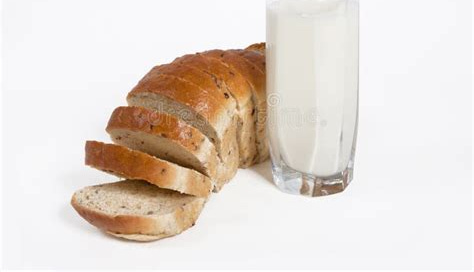I’ve been working a bit on inflation and the highly problematic concept of the ‘cost of living’ (shorter JQ: what matters is the purchasing power of wages, not the cost of some basket of goods). As part of this, I’ve been looking at how particular prices have changed over time, focusing on basics like bread and milk.
One striking thing that I found out is that, until quite late in the 20th century, the standard loaf of bread used to calculate consumer price indexes weighed 4 pounds (nearly 2kg). That’s about as much as three standard loaves of sliced bread. Asking around, this turns out to be the largest of the standard sizes specified in legislation like the Western Australian Bread Act which was only repealed in 2004, AFAICT.
Going back a century or so further, the Speenhamland system of poor relief in England specified the weekly nutrition requirements of a labouring man as a ‘gallon loaf" of bread, made from a gallon (about 5 litres) of flour, and weighing 8.8 pounds (4kg). Bread was pretty much all that poor people got to eat, so the amount seems plausible.
But why one huge loaf rather than, say seven modern-size loaves? And turning that question around, why are our current loaves so much smaller? I haven’t been able to find anything about this. Looking for images of these gallon loaves is difficult, because of the popularity of ‘loaf tanks’ made in the shape of bread loaves and with a capacity measured in (US) gallons.
Whenever I see a development like this, I think about shrinkflation, the process of reducing the size of a product as a surreptitious way of increasing the unit price. But shrinkflation is ultimately a cyclical process. When the standard size has been shrunk as far as it will go, it is replaced by a new ‘jumbo’ or ‘economy’ size, the same as the original standard size.
So, my best guess is that it is all to do with that proverbially marvellous invention, sliced bread. Sliced bread requires a standard size, and small is easier to handle. Also (guessing here), sliced bread may not keep as well, so we buy smaller loaves more frequently.
I’ve had some useful responses from Bluesky and Mastodon on this (I shudder to think how XTwitter would respond if I were still there), and now I’m throwing it over to my newsletter and blog readers. Any info would be appreciated.




This title is published on 11 January, rather serendipitously: A History of Bread: Consumers, Bakers and Public Authorities since the 18th Century, Peter Scholliers (Author) https://www.bloomsbury.com/au/a-history-of-bread-9781350361782/ . The author is Belgian, I think, so there may not be anything specific about British laws.
There is also this title in the UQ collection (it's in warehouse, so you'd have to place a hold): Bread and the British economy, c1770-1870 / Christian Petersen ; edited by Andrew Jenkins 1995 https://search.library.uq.edu.au/permalink/f/18av8c1/61UQ_ALMA2180715630003131
My two cents is bread in England was particularly dire in the 19th century. To some extent the lightness and moistness of a loaf depends on the amount of gluten and they were still using relatively low gluten wheat and other grains like barley and rye. It appears there was also some weirdness going on with yeast. Then in the 1870s, high quality, high protein white flour started to become available, yeast improved, and mass production raised the quality of commercial loaves while lowering the cost. It appears wrapping of bread was also an innovation in pre-plastic times. Suddenly, working people could afford to buy decent loaves and they therefore started to care about the quality (elasticity decreasing as a purchase represents a smaller portion of income). A week-old heavy, grainy, dry loaf is probably not much worse than a day-old heavy, grainy, dry loaf, especially when it would cost you a quarter of your week's wages to upgrade to a better quality loaf. Whereas if it costs you half an hour's wages to get the nice, soft loaf you start to care a lot more about how it tastes.
John, It’s not all about size. As an avid bread maker the thing I’m most astounded by is weight. That visually large loaf can weigh similar to my much smaller but denser ‘no knead’ loaf. I believe this has something to do with it as well.